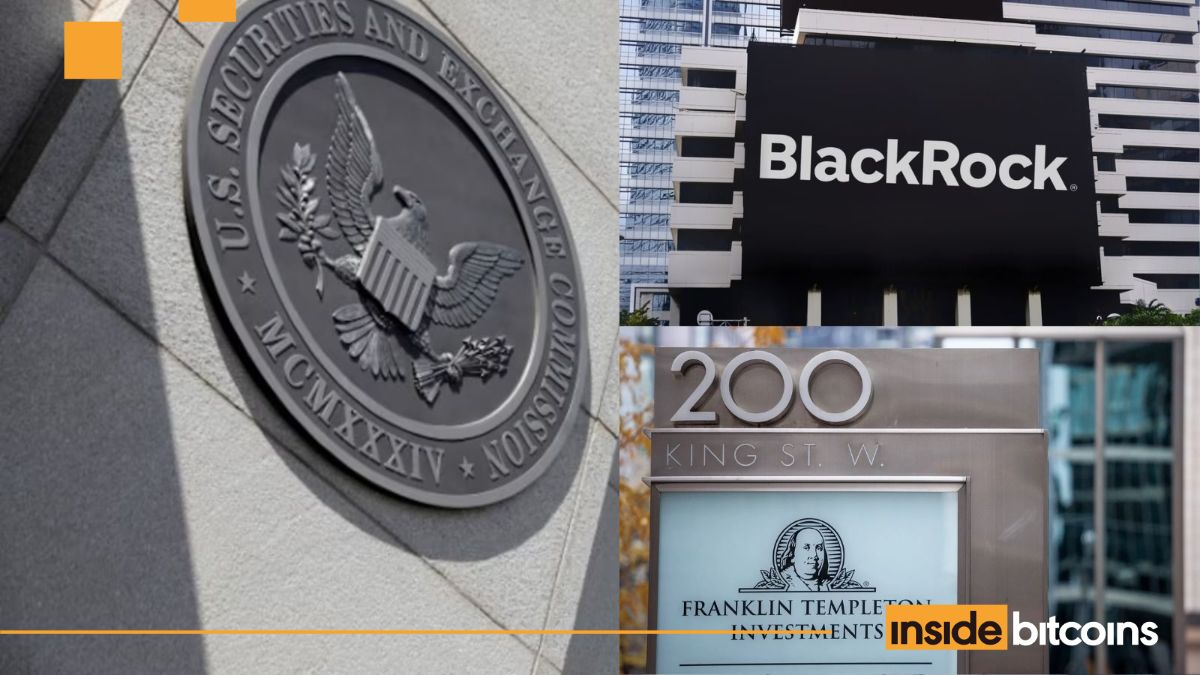2023-5-4 17:06 |
The Securities and Exchange Commission (SEC) continues to regulate the crypto space with increased vigilance. As cryptocurrencies grow in popularity, does the SEC successfully balance privacy and respect for innovation with the need to spot risks to investors?
Over the past few years, the SEC has tightened its regulatory oversight of cryptocurrency private funds. Admittedly, the SEC is responsible for regulating securities and investments in the United States. Private funds, such as hedge funds and private equity funds, are often exempt from many regulations that apply to publicly traded securities. However, private funds that invest in cryptocurrencies may still be subject to SEC oversight.
Concerns Over Private FundsOne of the concerns that the SEC has with cryptocurrency private funds is the potential for fraud and abuse. Cryptocurrencies are largely unregulated, which poses a risk that investors may be misled or defrauded.
Private funds investing in cryptocurrencies may be particularly vulnerable to these risks, as they often operate less transparently than publicly traded securities.
The SEC has taken several steps to ramp up its oversight of cryptocurrency private funds to address these issues. One of the ways that the SEC has done this is by requiring private funds that invest in cryptocurrencies to register. This means giving the SEC detailed information about the fund’s investment strategy, management, and performance.
In addition to registration, the SEC has also stepped up its enforcement efforts against cryptocurrency private funds that flout securities laws. This includes bringing civil actions against funds that fail to disclose material information to investors or engage in fraud. The SEC has also issued warning letters to cryptocurrency private funds that may violate securities laws.
Another area of concern for the SEC is the custody of cryptocurrencies. Because cryptocurrencies are digital assets, they are often held in online wallets or other digital storage solutions. These storage solutions may be vulnerable to hacking or other security breaches, which could result in the loss of investors’ assets.
Action Plan From the SECTo address this concern, the SEC has issued guidance on confiscating cryptocurrencies. This guidance requires private funds that invest in cryptocurrencies to take reasonable steps to ensure the safekeeping of investors’ assets. This includes implementing cybersecurity measures to prevent hacking and other security breaches.
Over the years, the cohort has been on the regulatory radar. In fact, in 2018, the SEC examined as many as 100 hedge funds focused on crypto, according to a recent Wall Street Journal story. Fast forward to 2023, and the SEC publishes another set of amendments to raise transparency requirements for private and public securities.
Here, the SEC, on May 3, announced changes to Form PF, which registered private funds prepare and submit to keep the Financial Stability Oversight Council (FSOC) apprised of their operations and the general health and stability of the financial market.
Hedge funds, a category that includes crypto investing and trading platforms, must now file Form PF “upon the occurrence of certain reporting events that could indicate significant stress at a fund or investor harm.” These include extraordinary investment losses, margin and default events, and “events associated with withdrawals and redemptions,” among other triggers.
Notably, businesses catering to these private institutions have grown significantly. This is evident in the table below. It charts not just crypto-related funds but all varieties.
Global private markets fundraising by region (in billions). Source: McKinsey“Private funds today are ever more interconnected with our broader capital markets,” states SEC Chair Gary Gensler. Adding, they have nearly tripled in size in the last decade.
“This makes visibility into these funds ever more important. Today’s amendments to Form PF will enhance visibility into private funds and help protect investors and promote financial stability.”
What Is Form PF?Form PF is a regulatory filing required by the SEC for certain private funds, including hedge funds and private equity funds. The filing intended to provide the SEC with information about the funds’ investment strategies, risk profiles, and other vital characteristics.
Form PF came into play in response to the 2008 financial crisis, highlighting the need for greater transparency and oversight of the financial system. The requirement applies to private funds that meet certain thresholds, such as funds with at least $150 million in assets under management (AUM) and funds that rely on certain exemptions from registration under the Investment Advisers Act.
Form PF aims to help the SEC better grasp the risks posed by private funds and inform its oversight of these funds. The information gathered via Form PF includes details about funds’ investment strategies, including the types of assets they invest, their leverage ratios, and their exposure to various markets.
In addition, Form PF requires private funds to offer information about their counterparties, including their prime brokers and other service providers. This is to help the SEC spot potential systemic risks and ensure that these counterparties adequately manage their own risks.
In theory, the information set down on Form PF is confidential and used only by the SEC. However, if necessary, the SEC may share the information with other regulatory or law enforcement agencies. A serious breach of privacy.
Changes for Hedge Funds and Private EquityHence, the agency has adopted a few critical changes. It will ask or, rather, force hedge funds with a minimum of $1.5 billion in AUM and private equity players to report “trigger events.” Such disclosures are required within 72 hours for the former. Also, quarterly or within 60 days of the fiscal quarter end for the latter.
On the public side, amendments related to the modernization of disclosure requirements for repurchasing an issuer’s equity securities —commonly known as “clawbacks”—will require issuers to disclose daily quantitative information. Notably, in 2021, buybacks amounted to nearly $950 billion and reportedly reached more than $1.25 trillion in 2022.
Keeping that in mind, SEC believes that such changes “will increase the transparency and integrity of this significant means by which issuers transact in their securities.”
Not everyone sees eye to eye with the regulators. Managed Funds Association (MFA), a US hedge fund trade group, asserts that the discussed amendments would pile on the pressure.
MFA President and CEO Bryan Corbett told BeInCrypto:
“We appreciate that the SEC has incorporated some of our suggestions, but we are concerned this final rule has the potential to exacerbate stress on funds, harm investors, and increase market volatility without commensurate benefit. It is disappointing that the SEC didn’t move both Form PF rules together to help reduce the implementation burden on managers.”
Questioning the MotiveAll these motions could be the repercussions of past events that did catastrophic damage. It is hard to say whether the SEC’s increased regulatory focus on private and hedge funds is, precisely, a response to the implosion of FTX and its hedge fund Alameda. Or the rush for redemptions that some exchanges struggle to meet.
While these events may have contributed to the SEC’s regulatory priorities, they are likely only a part of a broader trend toward greater financial industry oversight. But private funds will operate less freely. Expect much more intensive regulatory oversight as a direct consequence of the new reporting requirement.
Different NarrativesWhether the increased regulatory oversight of private and hedge funds is a measured and proportionate response is a matter of debate. Private and hedge funds operate in markets that are often less regulated and transparent than other types of investments. As a result, there is a more significant potential for fraud, abuse, and different types of misconduct.
In this context, the increased regulatory oversight of private and hedge funds is reasonable. Even a proportionate response to these risks.
In addition, the reporting requirements mean that private and hedge funds must comply with rules, including Form PF. Even provide regulators with important information about the funds’ investment strategies, risk profiles, and other vital characteristics.
This information can identify potential risks and inform regulatory oversight of these funds. In this sense, the increased regulatory oversight of private and hedge funds is a way to protect investors and the broader financial system.
On the other hand, critics argue that the tougher regulatory oversight of private and hedge funds is excessive and unnecessary. They say that private and hedge funds are essential to the financial markets. Increased regulation will stifle innovation and growth in these markets.
In addition, the reporting requirements imposed on private and hedge funds could be more manageable. If the funds had a bit more direct input into their drafting. As things stand, Form PF may discourage investment in these funds.
The post Is the SEC Targeting Crypto Trading With New Reporting Requirements? appeared first on BeInCrypto.
origin »Bitcoin price in Telegram @btc_price_every_hour
Emerald Crypto (EMD) на Currencies.ru
|
|













